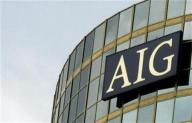
Dollar and yuan currency at a bank in China. China’s central bank has accumulated about $1 trillion in United States debt.
HONG KONG – China’s central bank is in a bind.
It has been on a buying binge in the United States over the last seven years, snapping up roughly $1 trillion worth of Treasury bonds and mortgage-backed debt issued by Fannie Mae and Freddie Mac.
Those investments have been declining sharply in value when converted from dollars into the strong yuan, casting a spotlight on the central bank’s tiny capital base. The bank’s capital, just $3.2 billion, has not grown during the buying spree, despite private warnings from the International Monetary Fund.
Now the central bank needs an infusion of capital. Central banks can, of course, print more money, but that would stoke inflation. Instead, the People’s Bank of China has begun discussions with the finance ministry on ways to shore up its capital, said three people familiar with the discussions who insisted on anonymity because the subject is delicate in China.
Read moreMain Bank of China Is in Need of Capital





